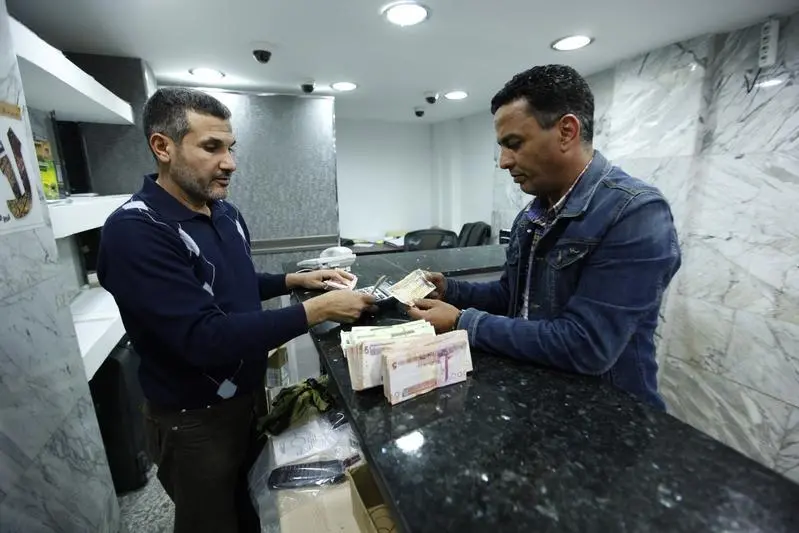PHOTO
Libya's dinar currency is losing value against the U.S. dollar in the country's black market amid a crisis over control of the central bank that has slashed oil output and exports.
Two black market dealers in Tripoli gave prices of 7.95 dinars to the dollar on Monday compared to 7.36 a week earlier, a drop of about 8%. The official exchange rate is 4.7 dinars to the greenback.
The sliding dinar may indicate that the impact of the ongoing dispute over leadership of the Central Bank of Libya (CBL) is starting to hit the economy more widely, which may further destabilise the major oil producer.
The dealers attributed the dinar's decline to a lack of dollars in the market as the crisis has stopped the CBL issuing letters of credit, a key tool of monetary policy and exchange and export transactions in Libya for years.
Its economy also relies heavily on oil revenue, and factions in eastern Libya have blockaded most exports as a tactic in the dispute over the CBL, leading to force majeure being declared on oil fields and cutting off the state's source of income.
The Government of National Unity, based in Tripoli in western Libya, has said it expects the CBL to resume issuing letters of credit this week.
The crisis began when Presidential Council chief Mohammed al-Menfi, based in Tripoli, last month announced he was replacing veteran central bank Governor Sadiq al-Kabir, prompting pushback from eastern factions.
Legislative bodies aligned with the two sides are conducting U.N.-backed consultations aimed at resolving the crisis but have not yet announced significant progress. While the crisis continues, the CBL's access to international dollar markets appears limited.
"The exchange price is volatile because no dollars are entering the country, and oil (exports), the only source of revenue in the country, have also stopped," said a black-market dealer. The dinar could drop further if the crisis drags on, he added.
“There should be a solution very quickly because we, the citizens, are the only victim of the central bank crisis,” said Hisham Mohamed, a 45-year-old father of five in Tripoli.
(Reporting by Ahmed Elumami; editing by Angus McDowall and Mark Heinrich)





















